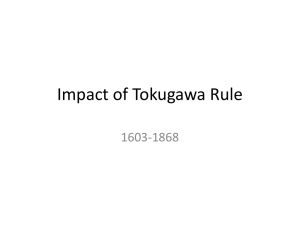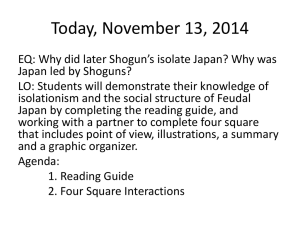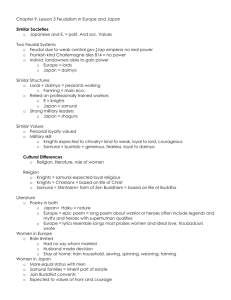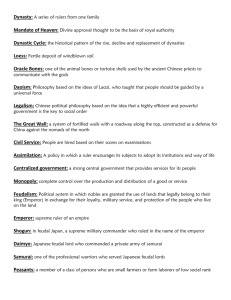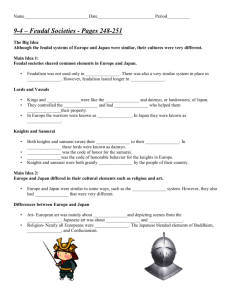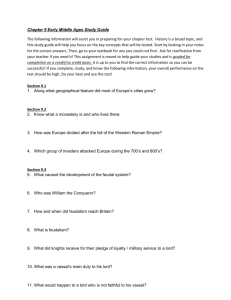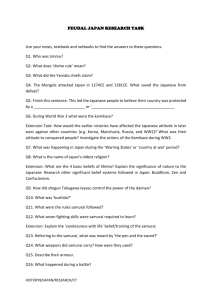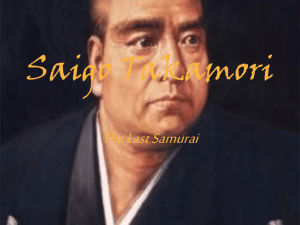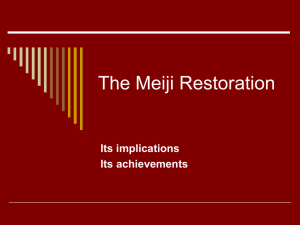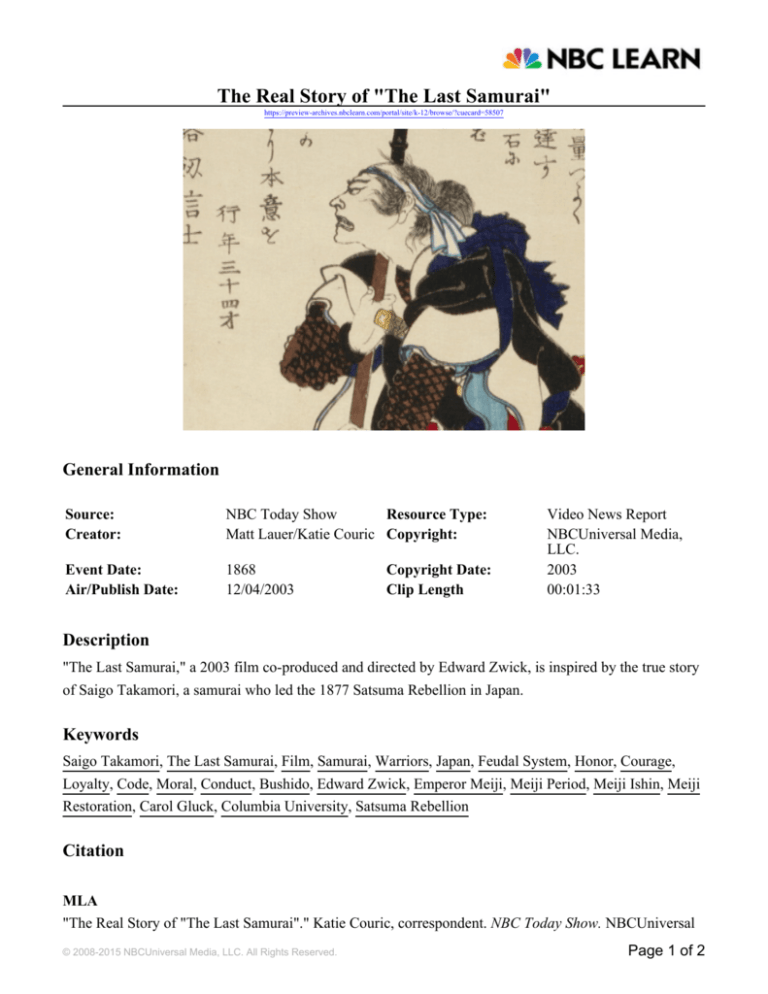
The Real Story of "The Last Samurai"
https://preview-archives.nbclearn.com/portal/site/k-12/browse/?cuecard=58507
General Information
Source:
Creator:
NBC Today Show
Resource Type:
Matt Lauer/Katie Couric Copyright:
Event Date:
Air/Publish Date:
1868
12/04/2003
Copyright Date:
Clip Length
Video News Report
NBCUniversal Media,
LLC.
2003
00:01:33
Description
"The Last Samurai," a 2003 film co-produced and directed by Edward Zwick, is inspired by the true story
of Saigo Takamori, a samurai who led the 1877 Satsuma Rebellion in Japan.
Keywords
Saigo Takamori, The Last Samurai, Film, Samurai, Warriors, Japan, Feudal System, Honor, Courage,
Loyalty, Code, Moral, Conduct, Bushido, Edward Zwick, Emperor Meiji, Meiji Period, Meiji Ishin, Meiji
Restoration, Carol Gluck, Columbia University, Satsuma Rebellion
Citation
MLA
"The Real Story of "The Last Samurai"." Katie Couric, correspondent. NBC Today Show. NBCUniversal
© 2008-2015 NBCUniversal Media, LLC. All Rights Reserved.
Page 1 of 2
Media. 4 Dec. 2003. NBC Learn. Web. 6 February 2015
APA
Couric, K. (Reporter), & Lauer, M. (Anchor). 2003, December 4. The Real Story of "The Last Samurai".
[Television series episode]. NBC Today Show. Retrieved from https://previewarchives.nbclearn.com/portal/site/k-12/browse/?cuecard=58507
CHICAGO MANUAL OF STYLE
"The Real Story of "The Last Samurai"" NBC Today Show, New York, NY: NBC Universal, 12/04/2003.
Accessed Fri Feb 6 2015 from NBC Learn: https://preview-archives.nbclearn.com/portal/site/k12/browse/?cuecard=58507
Transcript
The Real Story of "The Last Samurai"
MATT LAUER, co-host:
The 19th Century marked a turbulent era for Japan, as the land of the rising sun emerged from the old
powerful feudal system. But not everyone went willingly into modern times. Katie takes a look at those
noble and violent times.
KATIE COURIC, reporting:
It was a time of honor, of courage, of loyalty, and a way of life that was coming to an end. But who were
these warriors known as the Samurai? In real life, the Samurai developed a code of conduct known as
bushido, ‘way of the warrior.’ It taught them to master the art, and inspired absolute loyalty to their lords.
EDWARD ZWICK (Director, Writer and Producer, "The Last Samurai"): For 900 years, it was the center
of a culture, a set of behaviors that would actually influence these people to try to follow a life that was
purposeful.
COURIC: They didn't fear death. To die in battle was honorable, and it was better to die by one's own
hand than face dishonor. In 1868, the Samurai brought an end to the old feudal order. But under the
Emperor Meiji, the new government abolished the class system. The elite Samurai lost their stipends and
were forbidden to wear their swords.
Professor CAROL GLUCK (Columbia University): It was like an earthquake, like a historical earthquake.
COURIC: Some Samurai rebelled. Their leader, Saigo Takamori, would come to be known as Great
Saigo.
GLUCK: He is a hero in Japan not because his rebellion failed, but because he held true to his ideals and
his values.
© 2008-2015 NBCUniversal Media, LLC. All Rights Reserved.
Page 2 of 2

